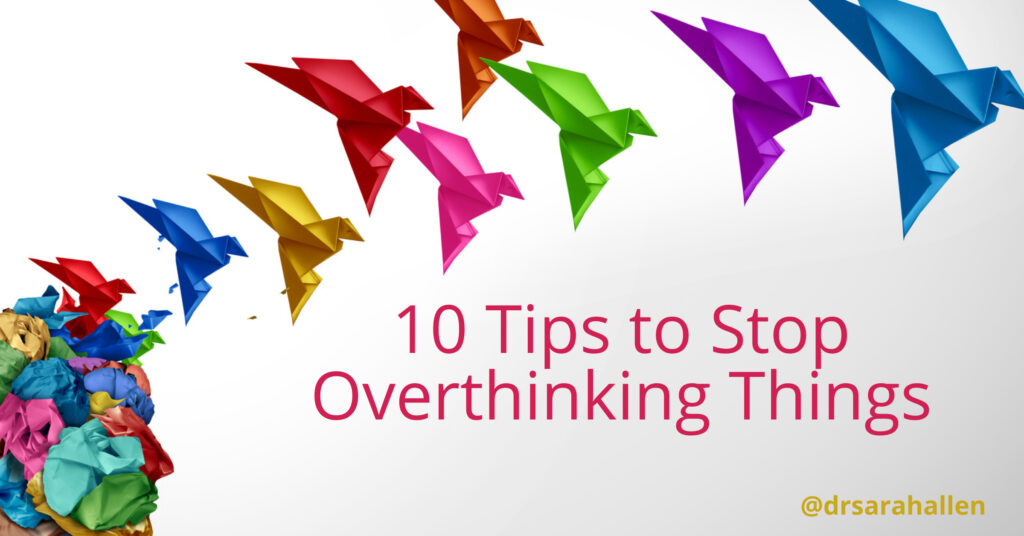
Self-esteem is how you feel and think about yourself. It plays a big role in self-confidence, contentedness within ourselves, and our emotions, especially anxiety and depression. High self-esteem helps you feel confident and capable, while low self-esteem can lead to feelings of doubt and insecurity. Understanding self-esteem and how it develops is the first step in improving it but I will also discuss some concrete steps you can take to start improving your self-esteem today.
From my experience working with clients, I’ve noticed that self-esteem starts forming early in life. How you’re treated by family, friends, and teachers can shape how you see yourself. Positive experiences can build a strong sense of self-worth, while negative experiences can lower your self-esteem. But the good news is, self-esteem can be improved at any age.
The relationship between low self-esteem and anxiety or depression is something many people deal with every day. It can feel like you’re stuck in a loop where self-confidence drops and anxiety increases, each feeding the other causing feelings of depression and hopelessness. Imagine this: when your self-esteem is low, every little mistake or perceived shortcoming seems huge, causing more anxiety about the future or fear of failure and rejection. This anxious state then makes you feel even less confident and a negative self-perception can limit your willingness to take risks or engage in new experiences, further limiting chances of building up confidence and self-esteem.
It’s important to remember that everyone has unique strengths and weaknesses and we can feel confident in some situations while less so in others. Some people might struggle with self-esteem due to self-critical thoughts, unrealistic perfectionist standards and they don’t show the same compassion to themselves that they do towards others. These thoughts can be changed with practice and the right strategies though. I specialize in Cognitive Behavioral Therapy (CBT) which is backed by research to show it is very effective in helping people increase self-esteem and the anxiety and depression issues that frequently come with low self-esteem. In this article, I’ll explore different ways to boost self-esteem, with in-depth exercises you can do yourself to challenge perfectionist and self-critical thought patterns and build more self-compassion to gain a more positive view of yourself.
Understanding Self-Esteem and Its Development
Self-esteem is the overall sense of value or worth you place on yourself. It affects your confidence, your decisions, and how you interact with others. Self-esteem begins to develop in childhood, influenced by your experiences and interactions.
Positive experiences such as praise, support, and love help build a healthy self-esteem. When you’re encouraged and celebrated for your achievements, you start to believe in your abilities. Conversely, negative experiences like criticism, neglect, or bullying can harm self-esteem. These experiences can make you doubt yourself and feel less valuable.
In my work with clients, I have learned that self-esteem is not static. It can change over time based on new experiences and personal growth. While early experiences play a significant role, adults can still reshape their self-esteem through positive interactions and self-reflection. Understanding that self-esteem is flexible and can be improved is an important step toward building a more confident and less anxious future.
Factors That Influence Self-Esteem
Several factors can influence your self-esteem. Recognizing these elements helps you understand why you feel the way you do.
1. Family Environment: The way family members treat you can deeply impact your self-esteem. Supportive and loving families tend to raise individuals with higher self-esteem, while critical or abusive families can lower it.
2. Social Interactions: Friends, peers, and social groups also play a role. Positive social interactions can boost your self-esteem, while negative ones can bring it down. If you have social anxiety, you avoid social interactions therefore never receiving the opportunity to build social confidence.

Read about Effective Ways To Manage Social Anxiety
3. Achievements and Failures: Success in different areas of life, such as school, work, or hobbies, can increase self-esteem. Conversely, failures and setbacks can hurt it. However, learning to see failures as part of growth is important.
4. Media and Culture: Media portrayal of “ideal” lives and bodies can affect how you see yourself. Constant comparisons to these ideals can lead to lower self-esteem.
5. Self-Talk: The internal dialogue you have can be critical or supportive. Negative self-talk can diminish self-esteem, while positive self-talk can enhance it.
6. Perfectionism: By setting unrealistically high standards for yourself and being overly critical of yourself when those standards aren’t met leading to disappointment and stress.

For a more general article about perfectionism read 10 Signs You Are A Perfectionist
Understanding these factors is essential for identifying areas in your life that may need attention. By recognizing what influences your self-esteem, you can start making changes to improve it. Developing a healthier relationship with yourself is possible when you become aware of these influences and begin to address them.
Practical Strategies to Boost Your Self-Esteem
Boosting self-esteem involves intentional and consistent efforts. Here are some practical strategies that can help:
1. Identify Strengths: Make a list of your strengths and achievements. Focus on what you do well and remember past successes. Celebrating small victories can build confidence.
2. Recognize “Should” Statements: Notice when you use words like “should” and “must” in your self-talk. These can create unnecessary pressure and expectations. Replace them with more flexible language.
3. Be Assertive: Communicate your needs and desires confidently. Practice saying no when necessary and stand up for yourself in a respectful way. People pleasing is often linked to not feeling assertive which then impacts low self esteem more.
4. Recognize and Challenge Negative Thoughts: The way we talk to ourselves has a huge impact on how we feel about ourselves and can really impact your self esteem. Below I will discuss how you can use the CBT approach to catch your negative thought patterns, also called Cognitive Distortions, and come up with different, more helpful but still realistic ways to talk to yourself.
5. Challenge Perfectionism: Let go of the need to be perfect. Perfectionism can lead to constant disappointment and stress. Below I am going to go into detail about how cognitive behavior therapy (CBT) can help perfectionism as it relates to self-esteem.
6. Build Self Compassion: Self-compassion is the practice of treating yourself with kindness, understanding, and support, especially in times of difficulty. When we are self-critical if often leads to negative self judgement which of course lowers self-esteem more and can result in feeling anxious to try new things in case of failure. In the last section of this article I describe a way to increase self-compassion.
Identify and Challenge Negative Thoughts for Better Self-Esteem
Understanding the Impact of Negative Thoughts on Self-Esteem
Imagine your mind as a garden. Our thoughts are seeds planted across this garden—and just like any garden, it needs tending. Nourishing positive thoughts can help you grow a vibrant and flourishing self-esteem, while negative thoughts act like weeds, threatening to overtake your mental landscape.
We all have moments of self-doubt where negative thoughts can creep in and take over but these types of thoughts aren’t always based on reality. Negative thoughts about ourselves often appear in the form of cognitive distortions—unrealistic and damaging beliefs that can diminish our self-worth. These might sound like:
- “I’m not good enough.”
- “I always mess up.”
- “I’ll never succeed like others.”
Common Cognitive Distortions in Self-Esteem:
All-or-Nothing Thinking
What it looks like: “If I’m not perfect, I’m a failure.”
Challenge it: Perfection is an unrealistic standard. Acknowledge your efforts and progress, celebrating small victories as steps toward growth.
Discounting the Positives
What it looks like: “Anyone could have done that; it wasn’t special.”
Challenge it: Recognize and affirm your achievements. Every step you take is significant and worthy of acknowledgment.
Jumping to Conclusions
What it looks like: “They didn’t call back, so they must not like me.”
Challenge it: Remember, there could be many reasons for their silence. Don’t assume the worst without evidence. Focus on gathering facts before drawing conclusions.
Catastrophizing
What it looks like: “I made a mistake at work; I’ll probably get fired.”
Challenge it: Consider the likelihood of your worst fear happening. Often, the reality is much less dire than the imagined scenario.
Step-by-Step Guide to Challenging Thoughts That Affect Self-Esteem
Step 1: Identify Your Negative Thoughts
Start by noticing when you feel upset or down about yourself. Write down exactly what you’re thinking. This could be how you feel after making a mistake at work or after comparing yourself to someone on social media.
Tip: Use a journal to keep track of these thoughts and the situations that trigger them.
Step 2: Examine the Evidence
Take a closer look at the thoughts you’ve written down. Ask yourself,
- Does my thought fall into one of the common thought traps?
- What evidence do I have that supports this thought?
- Is there any evidence that contradicts it?
For example, if you think, “I always mess up,” consider times you’ve succeeded or done something well. This helps you see a more balanced view.
Step 3: Challenge the Thought
Once you’ve examined the evidence, it’s time to challenge your negative thought. Ask yourself:
- Is this thought based on facts or feelings?
- Would I say this to a friend?
- How would I feel if I thought differently?
Reframe your thought into something more balanced. If your original thought was, “I’m not good enough,” try, “I have strengths and areas to improve, just like everyone else.”
Step 4: Practice Self-Compassion
Treat yourself with kindness. Remember that everyone makes mistakes and has moments of self-doubt. Acknowledge your efforts and progress, no matter how small.
Self-Compassion Exercise: When negative thoughts arise, pause and take a deep breath. Say to yourself, “I am doing my best, and that’s enough.” I go into more details about how to develop self-compassion further down this article.
Step 5: Take Action
Now that you’ve identified and challenged your negative thoughts, consider actions that reinforce your new, positive beliefs. This could be setting small, achievable goals that align with your values or seeking support from friends or professionals when needed.
Building self-esteem is a continuous process, much like tending to a garden. By identifying and challenging negative thoughts, you can cultivate a healthier, more empowering mindset. Remember, you’re not alone on this journey, and every step you take is a step toward a brighter self-view.
The Link Between Perfectionism and Self-Esteem
Perfectionism is the relentless pursuit of the unachievable. It often involves setting unrealistically high standards for yourself and being overly critical when those standards aren’t met. While striving for excellence can be motivating, perfectionism differs in that it ties your self-worth to your achievements and mistakes.
How Perfectionism Erodes Self-Esteem:
Fear of Failure: Perfectionists often fear failure to such an extent that they may avoid attempting certain tasks altogether. This fear can lead to procrastination or a reluctance to try new things, both of which can inhibit personal growth and lower self-esteem.
All-or-Nothing Thinking: Seeing situations in black-and-white terms can create a cycle of disappointment. If something isn’t perfect, it’s deemed a failure, leaving little room for acknowledging areas of success or progress.
Constant Criticism: Perfectionists are often their own harshest critics. Continual self-criticism can become a habit that chips away at self-confidence and self-worth, leading to feelings of inadequacy.
Comparison with Others: Perfectionists frequently compare themselves to others, focusing on perceived shortcomings and fueling a sense of never being good enough. This comparison can lead to envy, resentment, and further diminish self-esteem.
An Exercise to Reduce Perfectionism and Build Self-Esteem
Reducing perfectionism takes time and effort, but it is possible with consistent practice. Here’s a simple exercise to help you begin:
Step 1: Identify and Challenge Perfectionist Thoughts
Recognize when you are setting unrealistically high standards for yourself. Is it really necessary to achieve perfection, or is good enough actually okay? Challenge the belief that your self-worth is contingent upon being flawless.
Step 2: Highlight Past Achievements
Reflect on your past successes and achievements, no matter how small they seem. Write them down and revisit this list regularly to remind yourself of your capabilities and strengths.
Step 3: Set Realistic Goals
Break down larger tasks into smaller, manageable goals. By accomplishing these smaller steps, you can build momentum and confidence without the pressure of achieving perfection.
Step 4: Practice Self-Compassion
Treat yourself with kindness and understanding, just as you would treat a close friend. When you make a mistake or fall short of your expectations, remind yourself that it’s part of being human and an opportunity for growth.
Understanding Self-Compassion and Its Connection to Self-Esteem
I have mentioned self-compassion in both the previous exercises to build self esteem, but what is it exactly? Self-compassion is the practice of extending kindness, understanding, and support toward oneself, especially during times of failure or difficulty. Coined by Dr. Kristin Neff, self-compassion involves three core components:
Self-Kindness vs. Self-Judgment: Being kind and understanding to yourself instead of critical and judgemental.
Common Humanity vs. Isolation: Recognizing that everyone experiences struggles and you are not alone.
Mindfulness vs. Over-Identification: Being aware of your feelings without over identifying with them or suppressing them.
How is self-compassion relate to self-esteem? While self-esteem is often based on how we evaluate our worth in comparison to others, self-compassion is about treating ourselves with love and care regardless of external evaluations. Unlike self-esteem, which can fluctuate based on success or failure, self-compassion provides a stable source of support by accepting ourselves as we are.
Imagine you’ve given a presentation at work, and it didn’t go as planned. With low self-esteem, you might feel crushed by the failure, questioning your worth and capabilities. However, with self-compassion, you’d acknowledge the disappointment but remind yourself that everyone makes mistakes and that you can learn and grow from the experience.
An Exercise To Increase Self-Compassion
Step 1: Recognize the Need for Self-Compassion
- Example: You failed an exam or made a mistake at work. Instead of berating yourself, pause and acknowledge that you’re feeling hurt or frustrated.
- Action: Say to yourself, “This is a moment of struggle. It’s okay to feel disappointed, and I’m not alone in this.”
Step 2: Practice Self-Kindness
- Replace self-critical thoughts with supportive and caring words.
- Example: After making a mistake, instead of thinking, “I’m so bad at this,” say, “It’s okay to make mistakes. I’m learning and growing.”
- Action: Write a kind note to yourself or imagine what you’d say to a close friend in the same situation.
Step 3: Acknowledge Common Humanity
- Remind yourself that struggles are part of being human.
- Example: If you feel embarrassed about a social misstep, remind yourself, “Everyone has awkward moments; I’m not alone in this.”
- Action: Share your experience with a trusted friend or loved one to feel connected and gain perspective.
Step 4: Cultivate Mindfulness
- Practice noticing your emotions without judgment.
- Example: When you feel overwhelmed, instead of saying, “I shouldn’t feel this way,” acknowledge, “I’m feeling stressed right now, and that’s okay.”
- Action: Try a short mindfulness exercise, like focusing on your breath for a few minutes.
Step 5: Create a Self-Compassion Ritual
- Develop habits that promote self-compassion in your daily life.
- Example: At the end of each day, write down three kind things you did for yourself or three ways you handled a tough situation with care.
- Action: Dedicate time to self-care activities like reading, journaling, or taking a walk.
Conclusion
Building self-esteem is a process that takes effort and patience but if you are anxious or depressed, low self-esteem can be present and it is worth looking at how your self-esteem influences your thoughts, behavior and emotions. I discussed what factors influence self-esteem and how to apply practical strategies relating to noticing and changing negative and self-critical thinking patterns, perfectionism and practicing self-compassion.
Self-esteem influences many aspects of your life, from relationships to personal achievements. You may feel confident in one area of your life but not another. Boosting it can enhance your overall well-being and reduce anxiety and depression. Remember, change may take time, but every step you take is progress towards a more positive self-view.
If you’re struggling with low self-esteem and anxiety or depression, Dr. Sarah Allen can help. Reach out to Dr. Sarah Allen for professional anxiety treatment and depression treatment ans she can support you on your journey to better self-esteem.

If you have any questions, or would like to set up an appointment to work with me and learn how to reduce anxiety, please contact me at 847 791-7722 or on the form below.
If you would like to read more about me and my areas of specialty, please visit Dr. Sarah Allen Bio.
Dr. Allen’s professional licenses only allows her to work with clients who live in IL, FL & the UK and unfortunately does not allow her to give personalized advice via email to people who are not her clients.
Dr. Allen sees clients in person in her Northbrook, IL office or remotely via video or phone.

What Can I Read That Helps Me While I Am Waiting For My First Appointment With Sarah?
Download this free booklet to gain valuable insights and practical strategies for managing anxiety and worrying.

































